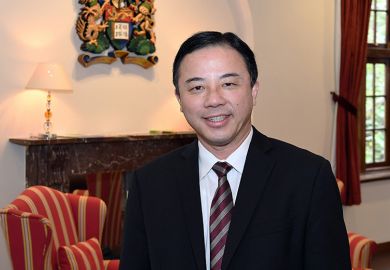Some years ago, the university I work for merged with a further education college about 30 miles away. The merger posed some immediate challenges for staff: public transport links to the college were poor; for those without a car, journeys required a train and a bus, and the return journey took more than two hours.
My university had an emerging solvency problem at the time. I suspect that part of the rationale for the merger was the fact that the further education college was solvent - but, as it turned out, only in the short term. The merger was short-lived.
In the end, the university closed the further education campus and the work of the college was transferred to another provider. Careers were disrupted, and staff working in the college had to live through the unsettling transition of merger, demerger and remerger with a new partner in a very short space of time.
What was it like to go through this for me, personally? At the time, the university was characterised by its underinvestment in teaching and learning resources, teacher development and research activity. So it was a struggle to be research active, to maintain a small core of committed researchers, and to encourage others to widen their horizons by conducting research, writing and presenting.
The merger with the further education college diluted our developing research interests (and funds) even further, and careers did suffer for some of us in the university. Funds flowed in one direction: to support the new partner. There was nothing to recognise or reward teaching excellence for those of us who developed modules and programmes or worked to improve quality assurance and the student experience.
Staff in the further education college were transferred on to a new pay scale, and a “hybrid contract” emerged to bridge the gap between further and higher education pay. The pay rises for college staff were up front and not tied to performance, while those of us working in the university had no budgetary support or recognition for our achievements. There was, therefore, some bitterness among established colleagues, especially when they had to support new colleagues in the college or travel to the new campus to teach programmes we had introduced there. Travel time was never recognised, and travel costs were considerable. It mounted up over a month when you were travelling once or twice a week, even though fares were refunded eventually.
There were other issues, too. We found ourselves operating two quality assurance systems. We knew little about Ofsted, which was responsible for inspecting the college, and our new colleagues knew little about its higher education counterpart, the Quality Assurance Agency. Our quality assurance costs increased after the merger because we suddenly had to use two “currencies”.
But the experience was not wholly negative. I found new and interesting colleagues, excellent teachers who took advantage of the research opportunities created by the merger; and some of those colleagues are still friends and still doing an excellent job for the university today.
The two chief executives who drove through the merger between their institutions did so as they prepared for retirement. Perhaps they thought it would put a nice finishing touch to their CVs.
The idea of the merger was also to encourage students to progress “seamlessly” from further education into higher education within the same institution. We acquired a small number of students who took advantage of our access courses in the further education college and transferred to our degree programmes, but not many - there was no geographic or financial advantage to them to travel outside a town that already had a university. That was pointed out to the two chief executives by many staff, both administrative and academic, but to no avail.
How are things these days? There are still no significant career development opportunities at the university - career profiles are flat. The university offset the costs of the hybrid pay scale by making savings in other places - by not paying staff the two top salary levels on the national pay framework agreement, for example. As academics, it seems, we are still paying the price of a short-lived and ill-thought-through “strategic opportunity”.
Register to continue
Why register?
- Registration is free and only takes a moment
- Once registered, you can read 3 articles a month
- Sign up for our newsletter
Subscribe
Or subscribe for unlimited access to:
- Unlimited access to news, views, insights & reviews
- Digital editions
- Digital access to THE’s university and college rankings analysis
Already registered or a current subscriber? Login




